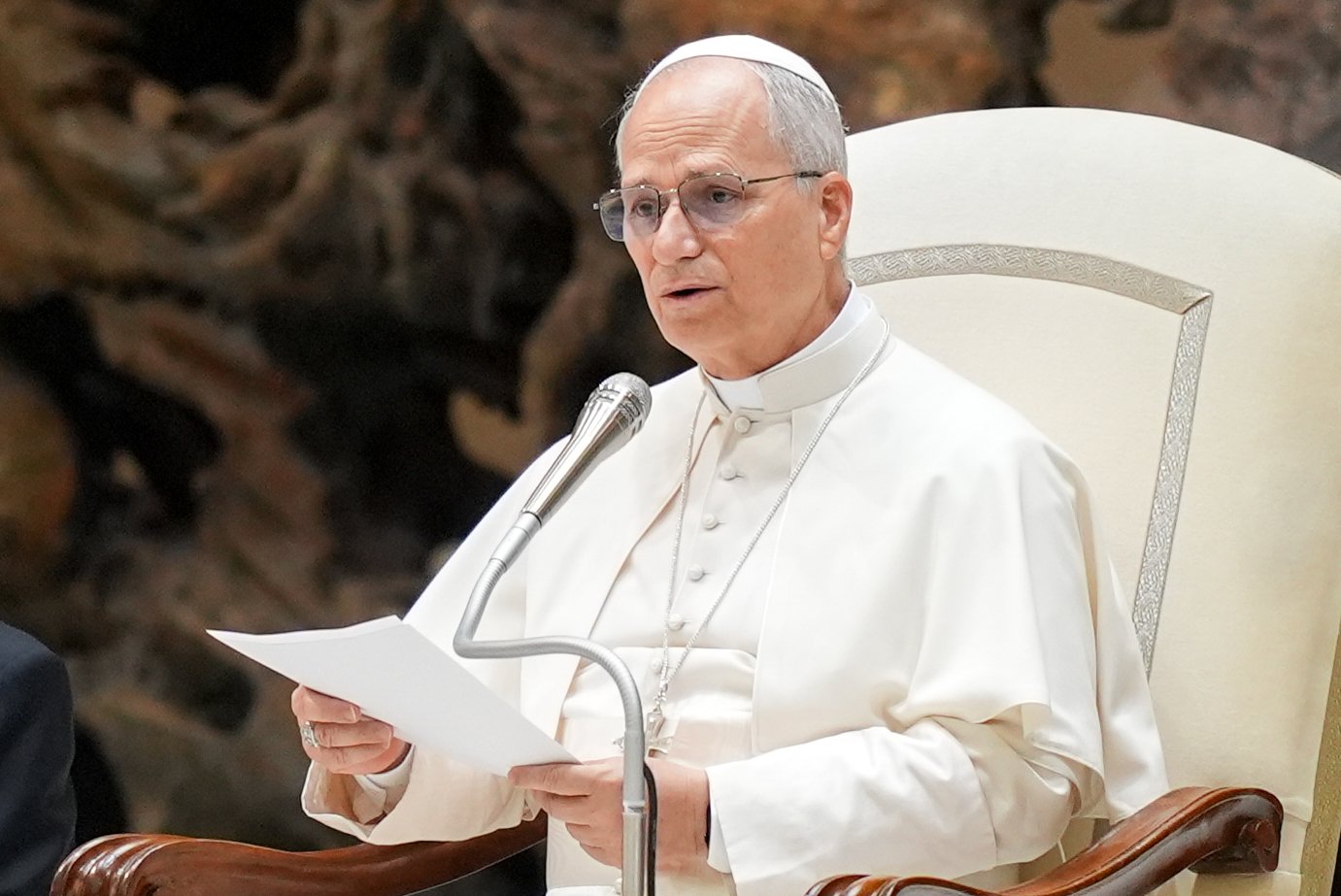Last week, I wrote a piece for America asking whether the shooting at a Catholic school in Minnesota—during a school Mass, no less—would prompt the first American pope to speak out against gun violence. Moreover, I asked, if he did address it, what would he say? Would he avoid an overtly political message in an effort to keep lines of dialogue open across the political spectrum?
The answer came on Sunday, when Pope Leo said, in English, that his “prayers for the victims of the tragic shooting during a school Mass in the American state of Minnesota include the countless children killed and injured every day around the world.”
He continued: “Let us plead with God to stop the pandemic of arms, large and small, which infects our world. May our Mother Mary, the Queen of Peace, help us to fulfil the prophecy of Isaiah: ‘They shall beat their swords into ploughshares and their spears into pruning hooks’ (Is 2:4).”
Three things stood out to me from his message.
First, the American pope spoke in his native language, which he does not often do. Leo takes seriously his role as the bishop of Rome and ordinarily prioritizes speaking Italian in his public addresses. The day of his election, for example, he spoke primarily in Italian, switching briefly to Spanish to address his former diocese in Peru, but spoke no English despite the international audience watching.
His decision to speak English to deliver this message, therefore, reveals that he wanted it to reach the United States. Perhaps more than his immediate predecessors, Pope Leo is media savvy; he knows that a statement in English is more likely to be included in English-language media broadcasts and thus that his words would more readily be amplified in his home country.
Second, the pope identified a “pandemic of arms”—not of gun violence, nor of mental health as so often happens after mass shootings, nor of “trans terrorism” or “anti-Catholic hate” that followed this particular shooting. Instead, he identified “arms, large and small” as the problem.
That unequivocal condemnation of arms was a much stronger message than I had anticipated from this pope, who has a reputation for being careful with his words. The decision, I think, shows the strength of his belief that arms are the problem. He also likely knew that, as when Francis criticized unbridled capitalism or environmental degradation, detractors would respond, as they already have, by saying he should stay in his lane.
The decision to speak out strongly against arms may also show that Pope Leo has become more comfortable expressing his opinion publicly from the throne of St. Peter.
Finally, I am struck that Leo called on people to ask Mary, Queen of Peace, to “help us to fulfil the prophecy of Isaiah.” Pleading with God to end the “pandemic of arms” and with Mary to “help us fulfil the prophecy”—that is, to “beat [our] swords into plowshares”—ties together prayer and action at a time when “thoughts and prayers” following mass shootings are seen with skepticism. In making this link between prayers and action, Leo emphasized that both are important, while echoing what the principal of Annunciation Catholic School said the day of the shooting, invoking an African proverb: “When you pray, move your feet.”
Related
